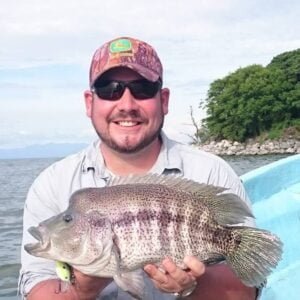When to Visit Nicaragua for Ideal Weather and Activities?
Nicaragua has distinct wet and dry seasons that should factor into when you plan your trip. The dry season from December to April is peak tourist season since there is little rain, making it ideal for enjoying beaches and outdoor activities like surfing. During the wet season from May to November, expect greener scenery as Nicaragua experiences daily short rainfalls.
If you want to avoid rain:
- Visit during the dry season from December-April for sunny weather and minimal rain
- Great time to enjoy beaches, hiking, and water sports like surfing without weather interference
If you don’t mind some rain:
- Wet season from May-November brings lush green scenery
- Daily rainfalls are often brief so you can still enjoy outdoor activities
- You’ll experience Nicaragua’s natural beauty during this shoulder season
Make sure to plan your Nicaragua trip during the season that aligns best with the weather and activities you prefer. The dry months promise plenty of sun and beach time while the wet months offer a lower chance of rain along with vibrant greenery.
Is Nicaragua Safe for Tourists?
Yes, Nicaragua is generally safe for tourists despite the political unrest in 2018. The protests primarily affected locals and did not impact tourists. Since protests have been banned, Nicaragua has resumed being one of the safest countries to visit in Central America.
The Nicaraguan people are very friendly, public transportation is safe, and walking around even at night poses minimal risks for travelers who exercise common sense precautions. Here are some tips for staying safe in Nicaragua:
- Avoid getting involved in political protests or discussions. Remain an observer.
- Do not use or traffic illegal drugs which carry harsh penalties.
- Use discretion when displaying expensive cameras, jewelry, or electronics.
- Stick to well-lit major streets at night and avoid wandering alone while intoxicated.
- Use hotel safes and lock boxes to secure valuable possessions and documents.
By being respectful and using reasonable caution, tourists can safely experience Nicaragua’s incredible natural beauty, lively cities, and warm culture. We felt very secure traveling in Nicaragua and highly recommend visiting this amazing country. Skipping Nicaragua means missing out on stunning scenery, world-class surfing, rich history, and the welcoming spirit of the Nicaraguan people.
When is a good time to visit Ometepe?
The dry season from November to April is considered the optimal time to visit the beautiful Ometepe Island in Nicaragua for pleasant weather and touring conditions.
However, the wet season from May to October offers a trade-off, as the lush foliage and fuller rivers create spectacular waterfalls on Ometepe Island during the shoulder months just after the rainy season.
Dry Season Benefits:
- Little rainfall from November to April
- Comfortable temperatures and sunny, dry weather
- Ideal for hiking, swimming, and exploring Ometepe
Wet Season Trade-Off:
- Increased rain from May to October
- Shoulder months feature lush scenery
- See Ometepe’s waterfalls at their peak right after wet season
Deciding when to visit Ometepe Island depends on your weather and sightseeing priorities. Dry season promises optimal outdoor conditions while wet season offers chances to see magnificent waterfalls. Either time of year provides fantastic experiences on this jewel of a volcanic island in Nicaragua.
Drone Regulations for Travelers in Nicaragua
Recreational drone use faces strict regulations in Nicaragua. Drones are illegal to fly and prohibited from crossing the border into the country entirely.
At land border crossings, customs officers thoroughly search all visitor belongings. Any drones found in bags will be confiscated on the spot. Officials may offer travelers the option to store drones with customs during their stay for a fee. However, reports indicate stored drones frequently go missing or get stolen.
A safer alternative is to leave your travel drone securely with a hotel or hostel in the neighboring country before entering Nicaragua. Collect the drone upon exiting Nicaragua after your visit. This prevents relinquishing it to unreliable border control storage.
While inconvenient, respecting Nicaragua’s ban on importing and operating drones helps avoid legal penalties. Recreational users should comply with the prohibition by either leaving drones outside the country or simply not packing one. Nicaragua prioritizes enforcing drone laws at borders and popular tourist sites.
Fines for attempting to fly a drone in Nicaragua start at $1,000. Drones also risk getting confiscated without compensation. Ensure you understand and follow Nicaragua’s strict drone policies to steer clear of legal trouble.
Guide to Tipping in Nicaragua
While not required, tipping is appreciated for good service in Nicaragua. Some restaurants automatically add a 10% voluntary gratuity, so review bills closely. Tipping standards resemble Canada and the United States.
Carrying small bills makes tipping easier in Nicaragua, where gracious gratuity is customary for good hospitality service. While not mandatory, tipping is an accepted cultural practice. Follow these Nicaragua tipping recommendations to show appreciation for good work.
Currency in Nicaragua
Nicaragua’s official currency is the Nicaraguan córdoba. However, United States dollars are widely accepted and used alongside córdobas, especially at tourist areas.
Most major stores, hotels, restaurants, and tour operators accept both forms of payment. Small family-run businesses may only take córdobas, so carrying small bills in the local currency is recommended.
The benefit of paying in US dollars is avoiding poor exchange rates when exchanging foreign cash into córdobas. Just be aware that receiving change back in small dollars may be difficult at times.
When using dollars in Nicaragua:
- Try to pay exact or close to the total amount.
- Accept change in córdobas to make transactions easier.
- Carry small USD bills ($1, $5, $10) for small purchases.
Paying in either córdobas or US dollars is perfectly acceptable in Nicaragua. Having both currencies on hand provides the most convenience and options for transactions. Just be prepared for businesses to potentially lack small dollar change at times when paying in USD.
Do You Need a Voltage Converter or Adapter for Nicaragua?
Most travelers from the United States will not require electrical converters or adapters for visiting Nicaragua.
Nicaragua operates on 110-volt, 60 Hz electricity – the same voltage used in the US. Standard American 2-prong flat plugs will fit into Nicaraguan outlets without an adapter.
The exception is travelers with devices that have grounded plugs (3 prongs). Grounded plugs will need a simple plug adapter to connect, as Nicaraguan outlets lack a hole for the third prong.
Dual voltage electronics like laptops, phone chargers, and hair dryers will automatically adjust to Nicaragua’s voltage. But 110V-only appliances like electric shavers may need a voltage converter in addition to an adapter.
To be prepared, pack adapter plugs if you have 3-prong grounded devices. And bring a voltage converter if you plan to use 110V-only electronics without auto voltage adjustment built in. With the right adapters, US visitors won’t have to worry about power compatibility in Nicaragua.
How do I get to the hotel from the airport when I arrive?
For a smooth arrival experience, we provide complimentary airport pickup and transfers to your Nicaragua hotel.
Please confirm your flight details with us ahead of time so we can coordinate your airport pickup accordingly. We look forward to greeting you and ensuring you start your Nicaragua vacation off right.
Arrange Your Dream Nicaragua Vacation with Us!
Let our local experts at Munditur Tours help you craft your perfect custom Nicaragua tour. Contact us today to start planning an unforgettable trip full of culture, nature, and adventure!

I have been a tour guide for over 20 years. I love to teach people about the natural beauty that our planet has to offer. As a part of my passion for the outdoors, I also enjoy fishing, hunting and more.

